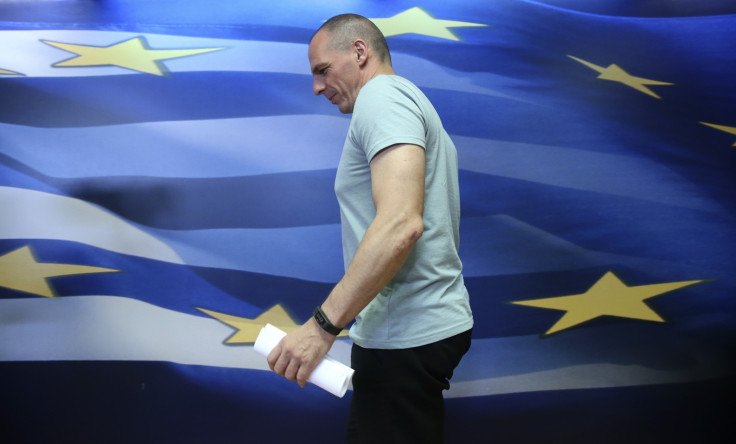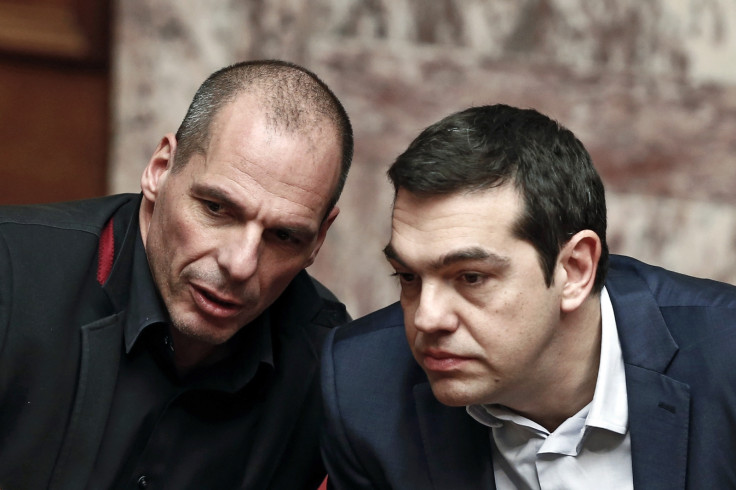Former Greek Finance Minister Yanis Varoufakis says new bailout a 'politics of humiliation'

Yanis Varoufakis who quit as Greek Finance Minister soon after the 5 July referendum has described Greece's new bailout deal reached on Monday as "a new Versailles Treaty."
"This is the politics of humiliation," he told the US Late Night Live show. He said the troika has made sure that they will make Greek Prime Minister Alexis Tsipras "eat every single word that he uttered in criticism of the troika over the last five years. Not just these six months we've been in government, but in the years prior to that."
"This has nothing to do with economics. It has nothing to do with putting Greece on the way to recovery. This is a new Versailles Treaty that is haunting Europe again and the prime minister knows it. He knows that he's damned if he does and he's damned if he doesn't."
Referring to the 1967 coup d'etat that installed a military dictatorship in the Mediterranean country, he said the choice of weapon then to bring down democracy was tanks. "Well, this time, it was the banks. The banks were used by foreign powers to take over the government. The difference is that this time they're taking over all public property."
Varoufakis suggested that Tsipras may call for a snap election rather than put the deal before the Greek parliament, saying that he would be "very surprised" if Tsipras wanted to stay on as prime minister.
Plans made for Grexit

He said he and the prime minister remain on good terms despite his resignation and that he had kept a low profile in a bid to support Tsipras and his successor Euclid Tsakolotos.
During his tenure as finance minister, Varoufakis said there were contingency plans in the event of a Grexit. "We had to have a small team of people in secret who would create the plan in case we were forced to exit the monetary union," he said, adding that the plan was on paper but never activated.
In an interview given to the New Statesman, Varoufakis said: "This country must stop extending and pretending, we must stop taking on new loans pretending that we've solved the problem, when we haven't; when we have made our debt even less sustainable on condition of further austerity that even further shrinks the economy; and shifts the burden further onto the have-nots, creating a humanitarian crisis."
Prior to his resignation, he said he still had some leverage once the European Central Bank forced Greece's banks to close. He had spent the past month warning the Greek cabinet that the ECB would close local banks to force a deal and when they did so, he was prepared to issue euro-denominated IOUs, apply a haircut to the bonds Greek issued to the ECB in 2012 which would effectively reduce Greece's debt and seize control of the Bank of Greece from the ECB.
He said these moves would have threatened a Grexit but expressed confidence that Athens would not be expelled as there was no legal provision for such a move.
Syriza failed to seize opportunity referendum offered
Varoufakis told the New Statesman that he thought the outcome of the referendum offered Tsipras the mandate needed to strike such bold moves or at least announce them.
Following the referendum, Syriza's six strong inner cabinet held a vote and by 4-2, rejected Varoufakis's plan.
"That very night the government decided that the will of the people, this resounding 'No' should not be what energised the energetic approach [his plan]. Instead it should lead to major concessions to the other side: the meeting of the council of political leaders, with our prime minister accepting the premise that whatever happens, whatever the other side does, we will never respond in any way that challenges them. And essentially that means folding ... you cease to negotiate."
In his interview, he strongly criticised the troika for "never genuinely" negotiating during his five months as finance minister and was especially critical of Germany's Finance Minister Wolfgang Schäuble.
"His view was 'I'm not discussing the programme – this was accepted by the previous [Greek] government and we can't possibly allow an election change anything."
Varoufakis also warned that if the Syriza party betrays the hope of the Greek people and "bow our heads to this new form of post modern occupation", this would only embolden the far right party.
He sees no other possible outcome than the strengthening of the far right neo-Nazi party, the Golden Dawn which will "tragically" inherit the mantle of the anti-austerity drive.
© Copyright IBTimes 2025. All rights reserved.






















